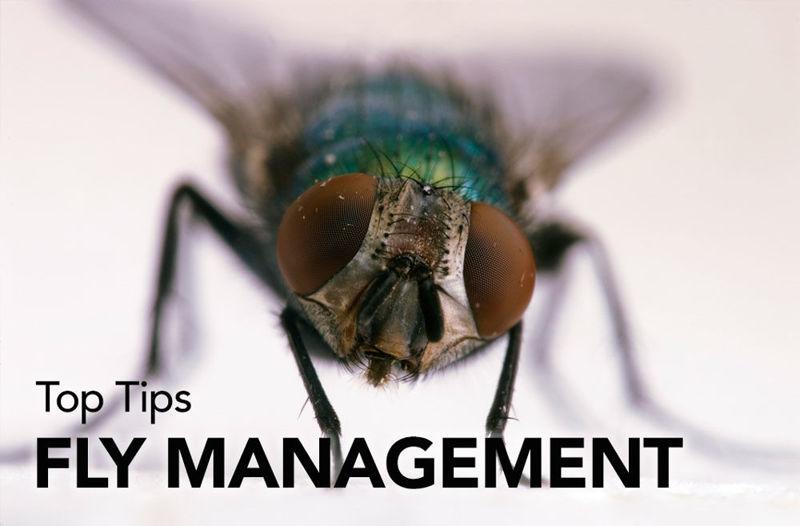As the weather warms up and summer progresses flies start to become a problem for us and our horses. There are many products on the market to tackle flies, with varying degrees of effacacy. In this article we look at how you can help your horse avoid flies without resorting to harsh chemicals.
1. Where there's muck...
You can reduce your dependence on fly sprays and insecticides by managing your horses manure. Flies and other insects use manure as a breeding ground so keeping manure away from where your horse spends the majority of their time, will help to reduce the annoyance of flies. Composting your manure also helps, as flies are attracted for fresh manure rather than older, decomposing piles.
2. Still water
Avoiding areas of stagnant water and keeping your horses away from any areas where water sits will reduce exposing your horse to mosquitos. Mosquitos are an annoyance for horses and humans and will breed in any standing water that has not been moved or added to in 5 days. Remove any buckets or troughs that could fill with water and become stagnant and ensure that you always refresh any water your horse has access to. If you have areas of turnout that are prone to waterlogging, fence these off if possible or use gravel or sand to help improve the drainage and reduce the mud.
3. Inner space
For horses that suffer badly with flies and insects, such as those with sweet itch or any horses with wounds that need to be kept clean, allow them access to a dark and cool space. Flies and other biting insects don’t like to enter dark barns or shelters so will naturally stay away. Avoiding turning your horse out before dawn and ensuring that they are inside before dusk will also helps and these insects are more active around these times.
Fly Formula™is a natural oral fly deterring supplement, designed to reduce irritation from flies whilst supporting healthy skin and a shiny coat. When ingested on a daily basis, the pungent aroma of the ingredients passes through the skin to discourage flies. The powerful herbs have soothing, tonic effects on the skin, coat and digestive system, ideal for horses with sensitivity to fly bites. Clinically proven live yeast, Yea-Sacc®, is included to ensure maximum absorption of the nutrients. Click here to find out more >>
4. Barrier methods
Fly mask and fly rugs help to provide a physical barrier which is an effective way of preventing flies and insects from physically touching your horse’s skin. Fly masks help to prevent flies from entering the horses ears and stops them landing around their eyes, which for some horses can cause irritation and eye problems.
5. The Natural World
Other methods to manage fly and insect populations include encouraging insect eating birds and bats. Swallows are great fly catchers and can consume thousands of insects in one day. Bats eat nocturnal flying insects so with a diverse range of wildlife around your yard, you can have 24-7 management of flies and other insects to help keep you and your horse comfortable.
6. The Herbal Solution
Before reaching for chemical control methods, there are lots of herbs and natural ingredients which can help your horse out and also deter flies and insects. Garlic contains a sulphur compound, which when ingested, is secreted through the skin. Insects taste via their feet, and those landing on the horse dislike this Sulphur, and so are less likely to bite the horse. Fenugreek offers similar benefits making it a beneficial fly deterrent. Lemon Peel contains limonene, which is a potent insect repellent. Peppermint contains menthol which acts as a natural pesticide and Rosemary, which is naturally strong smelling also acts to keep flies at bay.












